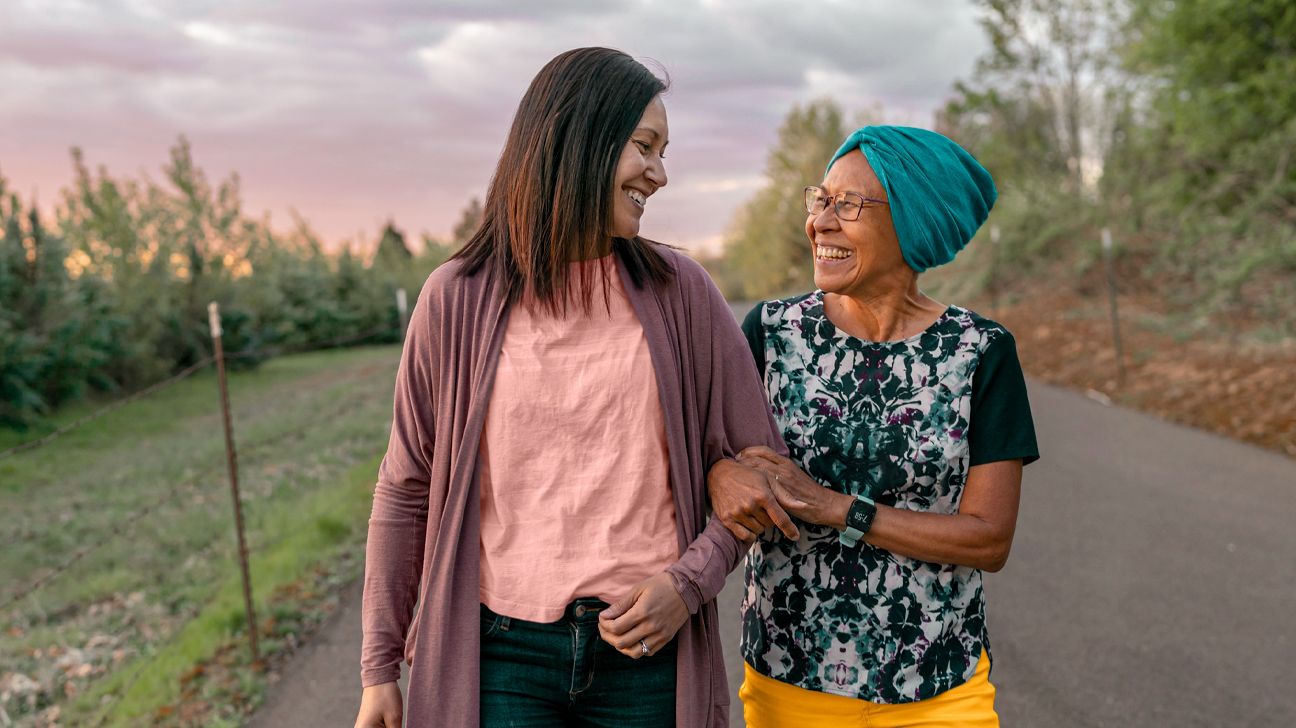6 Women Share What They Wish Others Would Stop Saying About Breast Cancer
July 28, 2021
Content created for the Bezzy community and sponsored by our partners. Learn More

Fly View Productions/Getty Images
Bezzy BC community members share why six well-meaning messages about breast cancer may cause more harm than good.
Navigating a new breast cancer diagnosis is difficult. It affects your physical, emotional, and psychological well-being. It can also affect your relationships and social life.
After a diagnosis, and when you’re going through treatment, you may want to lean on others. However, this can be challenging when it feels like your loved one’s don’t know exactly what to say or do.
Sometimes, if people are uncomfortable talking about cancer, they may resort to phrases that feel overly optimistic or cliché.
Most of the time, these messages are well-meaning and come from a place of love. Still, many people don’t realize that sometimes these messages can be interpreted as insensitive or unrealistic.
At times, positive phrases and ideas can help raise your spirits and make you feel hopeful. Other times, positivity can just make you feel worse.
When positivity feels insincere or harmful, it’s often referred to as toxic positivity.
Toxic positivity can make people feel as though the negative emotions they’re having — like sadness, anger, or fear — aren’t legitimate or warranted.
Sometimes messages like “you can beat this” add pressure and make people feel like they aren’t working hard enough to get better.
Members of the Bezzy BC community understand how frustrating and complex it can be to navigate relationships when you live with breast cancer.
Six community members shared some of the well-meaning messages they wish people would stop telling them about breast cancer.


‘You can fight this’
“Does anyone else get frustrated when people tell you to ‘fight’ or say ‘you’ve got this’? I don’t know exactly why, but it makes me angry. It makes me feel like if I don’t survive, it’s because I didn’t fight hard enough.
Fighting implies choice. I don’t feel like I have any control or choice here.” — Anonymous
‘You’re so strong’
“I have had people tell me how strong I am. I think: ‘No I’m not, I’m a big baby at times.’
I guess sometimes being strong isn’t a choice. It’s breathing, laying in bed today, making it through another treatment, and praying it’s better tomorrow.” — Lrvmcvelv64
‘Cancer is a battle’
“I dislike the fight or battling analogy for health issues, especially cancer, and particularly now that I have had cancer.
The analogy assumes you can win or lose and that there are winners and losers. Neither of which is accurate or true.
I also don’t like the fight or battle analogy because it assumes I am fighting my own body. My body is not an enemy to be fought.
My body has been doing its job to keep in good health and balanced. I’m not at war with my own body.” — Louise E.
‘You’re an inspiration’
“No, I’m not ‘an inspiration.’
I’m just listening to my doctors and doing what they’re telling me I have to do if I want to live. The toxic positivity is so hard to deal with, especially because it’s all well-meaning.” — Lizzie
‘You’re a warrior’
“When I hear ‘you’ve got this’ or ‘fight like a warrior’ I think only about how impossible each statement is…
I don’t want this and, as of yet, I’m not sure how to fight unless ‘fighting’ just means choosing the right medical team and maintaining a positive attitude. Acting positive is so hard when I am just not sometimes.” — Ashton
‘You’ve got this’
“I’ve made sure no one can talk to me about my cancer. I text with a few people who are responsible for relaying information to those who think they need to know something.
I couldn’t take all the ‘you’ve got this!’ messages… I’ve got what?
Having ‘you’ve got this!’ thrown at me many times makes me so mindful of saying unhelpful platitudes to others. Now I think before I speak, sometimes it’s just a simple ‘I’m thinking of you.'” — Jules10
The bottom line
It’s important to keep in mind that everyone’s experience with breast cancer is unique. Likewise, the type of support that different people want or need varies.
Some people may feel energized by hopeful messages, while for others, messages like “you’ve got this” may make them feel discouraged or upset.
If a friend or family member has recently been diagnosed with breast cancer, it’s OK if you aren’t sure what to say. Messages along these lines can be a good place to start:
- “I’m thinking of you”
- “I’m here if you ever want to talk”
- “I’m so sorry you’re going through this”
It’s OK if you feel scared or sad when someone you love tells you about their diagnosis. Remember that no one is expecting you to have a solution or “fix” the situation.
The best thing that you can do is make sure that your loved one knows that you’re there if they need you. Sometimes the best way to help is by just listening, or being there.
If you’re living with breast cancer, it can help to meet people who know exactly what you’re going through.
Whether you’re looking for advice about navigating relationships with breast cancer, or if you’re just in search of a place to vent, the Bezzy BC community is here for you.
Article originally appeared on July 28, 2021 on Bezzy’s sister site, Healthline. Last fact checked on July 26, 2021.
Fact checked on July 28, 2021


Like the story? React, bookmark, or share below:
Have thoughts or suggestions about this article? Email us at article-feedback@bezzy.com.
About the author